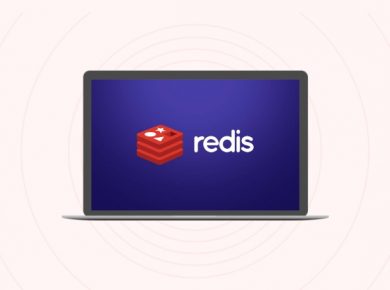Imagine this.
You have a brilliant idea — the kind that keeps you awake at night because you know it could change everything. You sketch it out, share it with a few friends, and the vision becomes clearer. The excitement builds. But then reality strikes: Who will build this?
The dream is vivid, but execution needs developers. The right developers.
Now you’re at the crossroads that every serious founder, startup, or growing business eventually faces. Do you pull together an in-house team — close-knit, right there with you every day — or do you cast your net wider and hire remote developers who can bring speed, flexibility, and global expertise?
It’s not just a hiring decision. It’s a choice that will shape your culture, your costs, and ultimately the future of your business.
Understanding Remote Developers
Remote developers are professionals who work outside your company’s physical office space, often from a different city or even country. With the rise of high-speed internet, project management tools, and global collaboration platforms, remote development has become not only possible but a competitive advantage for many organizations.
Key Advantages of Remote Developers
- Access to Global Talent
You are no longer limited by geography. Hiring remote developers means tapping into specialized skills from anywhere in the world. - Cost Flexibility
Companies save significantly by hiring in regions where top developers charge less without compromising quality. This makes it ideal for startups and businesses looking to extend their runway. - Scalability
Need to scale fast? Remote developers can be hired project-by-project, which allows flexibility in expanding or reducing your workforce based on demand. - 24/7 Productivity
With time zones spanning the globe, remote teams can continue work while your in-house team sleeps, effectively extending productivity hours. - Reduced Overhead Costs
Office space, equipment, and local employee benefits are minimized. This lowers fixed costs and allows resources to be directed to core business growth.
Challenges of Remote Developers
- Communication barriers caused by time zone differences.
- Cultural differences that affect alignment and collaboration.
- Difficulty monitoring progress in real time.
- Risk of lower loyalty if developers are project-based freelancers rather than long-term hires.
Understanding In-House Teams
In-house teams are developers hired as full-time employees who work physically (or partially) in your office. They are integrated into your company’s daily culture, structure, and strategy.
Key Advantages of In-House Teams
- Deeper Collaboration
In-house developers sit close to product managers, designers, and other departments. Ideas can be exchanged instantly, and problems resolved faster. - Cultural Alignment
These teams breathe your company’s vision and values daily. They share the same work culture and are more invested in long-term outcomes. - Immediate Availability
Face-to-face interactions improve coordination. When urgent changes or brainstorming sessions are needed, in-house teams can respond quickly. - Stronger Security Control
Intellectual property and sensitive data remain within the company walls. This reduces the risk of security leaks. - Long-Term Commitment
Developers who grow with the company often become advocates and brand custodians, bringing stability and loyalty.
Challenges of In-House Teams
- High hiring and retention costs.
- Limited access to specialized skills, especially if your local talent pool is small.
- Office space and equipment expenses.
- Slower scalability — adding or replacing developers takes time and resources.
Remote Developers vs In-House Teams: Key Comparisons
1. Cost Efficiency
Remote developers generally cost less due to flexible contracts and reduced overhead. In-house teams require higher investment but bring stability and stronger cultural alignment.
2. Talent Availability
Remote hiring allows access to specialized developers globally. In-house limits you to the local pool, which may or may not meet your project’s requirements.
3. Communication and Collaboration
In-house wins when it comes to instant collaboration. Remote developers rely on tools like Slack, Zoom, and Jira, which can sometimes slow down feedback loops.
4. Scalability
Remote teams scale faster since you can onboard developers from different regions in days. In-house scaling involves recruitment processes, office adjustments, and onboarding time.
5. Security and Control
In-house teams offer better control over projects and data. Remote developers need strong contracts, NDAs, and security protocols to minimize risks.
6. Company Culture and Loyalty
In-house developers are more likely to connect with your vision, values, and mission. Remote developers can deliver exceptional results but may remain detached from the company culture.
Which Option Works Best?
The truth is, there is no one-size-fits-all answer. The right choice depends on your business stage, resources, and goals.
- Startups and growing businesses often benefit from hiring remote developers because of the flexibility, cost savings, and quick scalability.
- Established enterprises may prefer in-house teams for their commitment, loyalty, and cultural alignment.
- Hybrid models — combining in-house leadership with remote developers — are becoming increasingly popular. This allows companies to maintain strategic control while enjoying the speed and affordability of global talent.
How to Decide for Your Business
Ask yourself these questions:
- What is my budget for development?
- How fast do I need to scale the team?
- Do I need specialized skills that are hard to find locally?
- How critical is security and intellectual property to this project?
- Do I want long-term loyalty and culture integration, or short-term flexibility?
The answers to these questions will guide you toward whether remote developers, in-house teams, or a hybrid model best fits your needs.
Final Thoughts
The question of remote developers vs in-house teams is not about which is universally better — it’s about which is right for your business at this moment. Remote developers unlock speed, flexibility, and access to global expertise. In-house teams bring loyalty, culture, and tighter collaboration. The smartest companies today often blend both, creating hybrid models that deliver stability and scalability.
What matters most is not the model itself, but how strategically you align your developers with your long-term vision.
At Chigisoft, we believe developers are not just coders — they are builders of the future. Whether remote or in-house, the real key is creating the right environment for them to thrive, innovate, and drive growth. If you’re ready to build a team that doesn’t just write code but delivers lasting impact, the time to make that choice is now.



